Photos : Urban garden around Liège, Belgium
18 August 2018
In recent years, urban vegetable gardens have become popular in all major European cities.
However, the phenomenon is not new in Wallonia and more particularly in Liège, Belgium.
Indeed, most of the city’s inhabitants have known these vegetable gardens in the Liège landscape since their early childhood.
The most famous and largest in Wallonia, the Bressoux vegetable garden, in the suburbs of the Cité Ardente, has been in operation since the beginning of the 20th century.
The plots of land are generally rented by the inhabitants of the nearby social city.
The concession is often passed on from generation to generation.
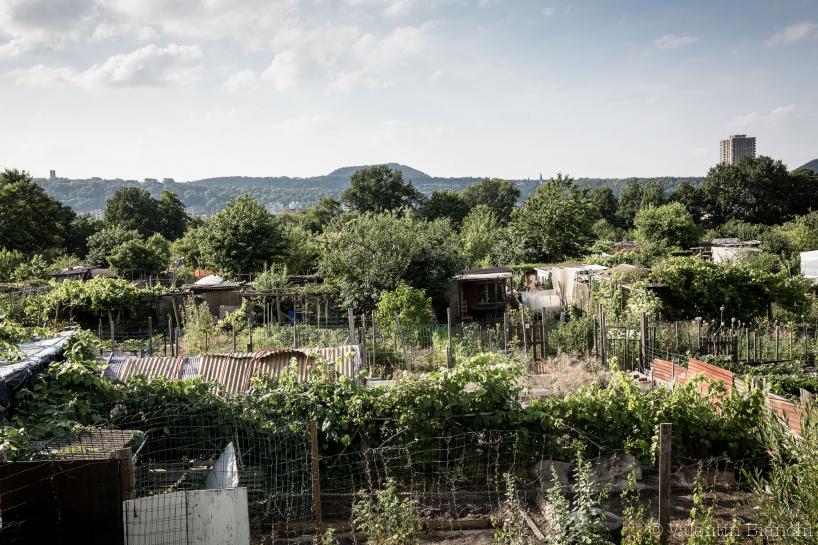
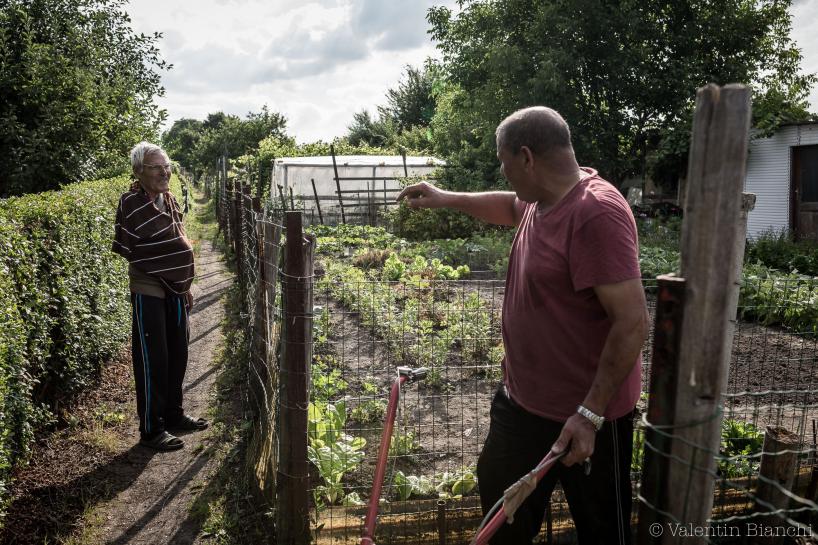
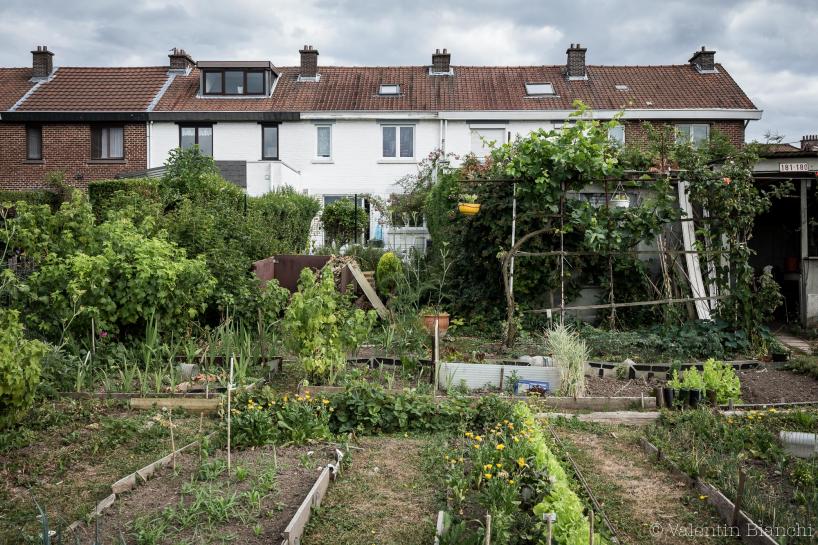
During the year 2017, a rumour is spreading around this community vegetable garden that the soil is polluted with heavy metals. The Liège steel basin, due to its past, is likely to experience this type of pollution.
Among the families using this community vegetable garden on a daily basis, there is a lack of understanding, most of the families present on the site have been consuming vegetables for more than 50 years for some. However, the rate of diseases related to heavy metals in these families is no higher than in the region.
Some even mention having samples taken as early as the 1980s to check the quality of the food consumed.
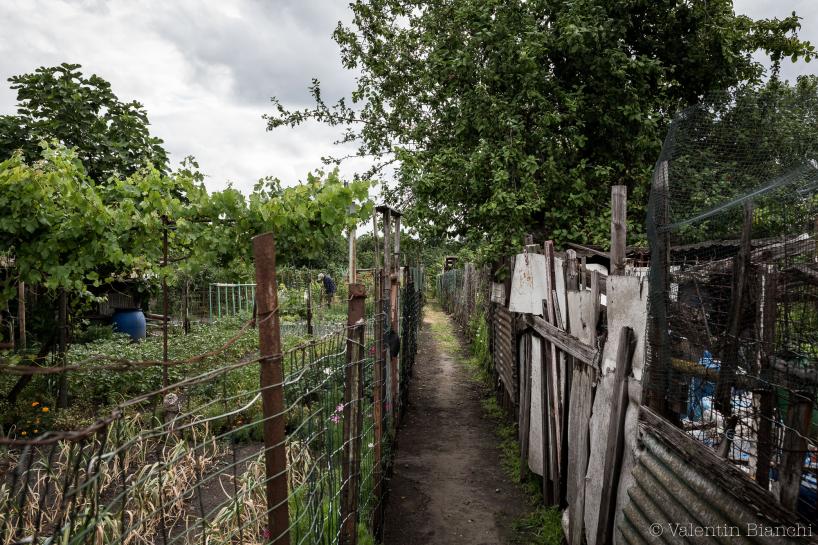
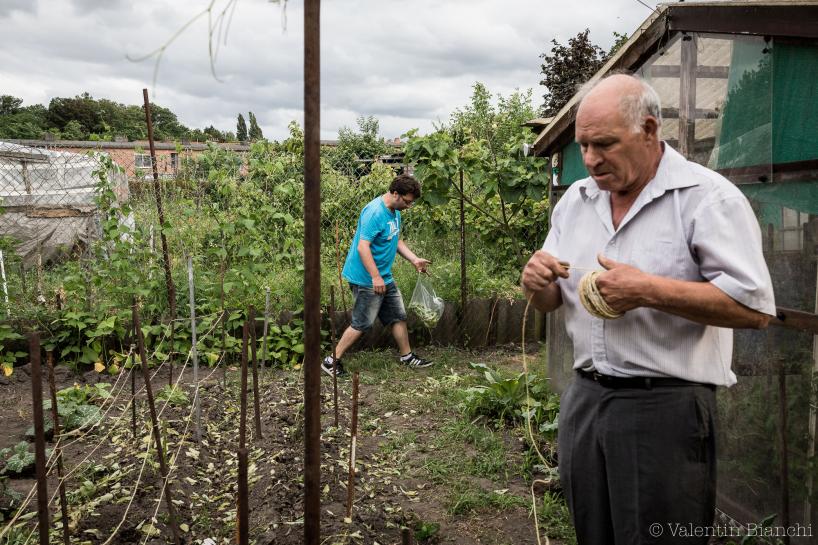
The association of the league of the corners of land of Bressoux decides to lift all suspicions and therefore entrusts a group of scientific experts from the University of Liège and more particularly from the department of agronomy of Gembloux, with the task of providing a precise response to this possible pollution with heavy metals.
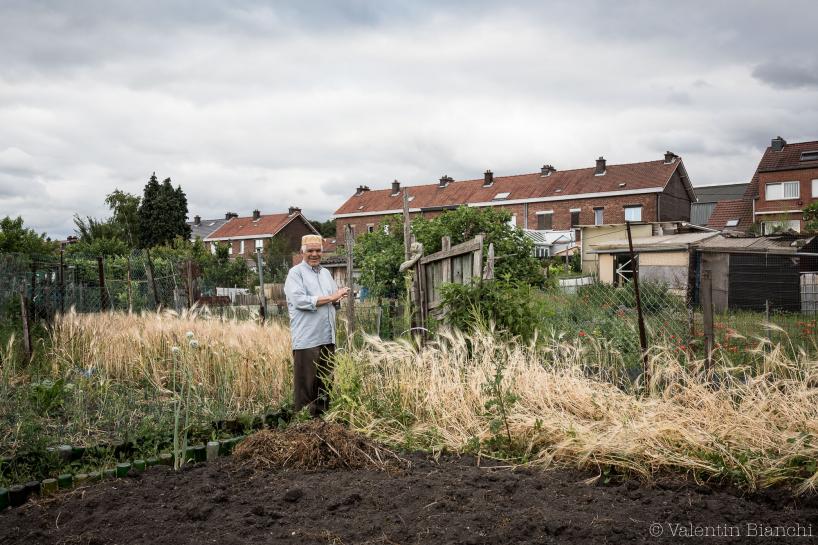
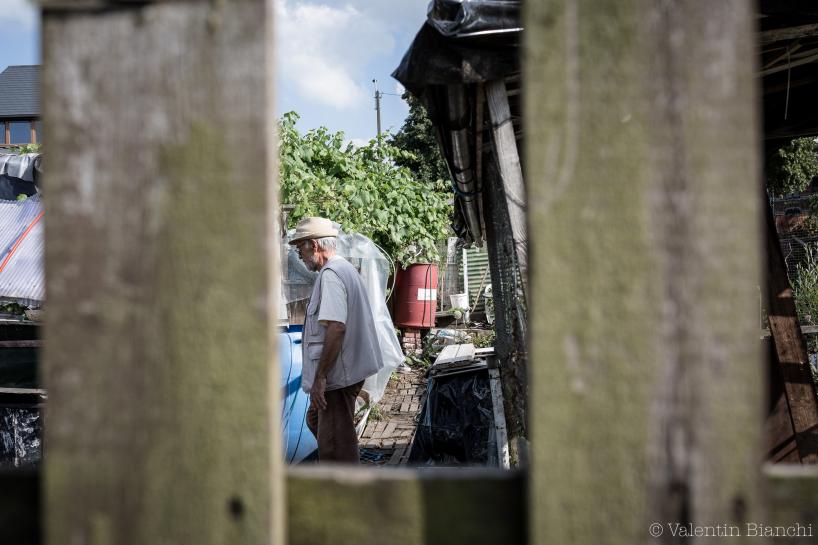
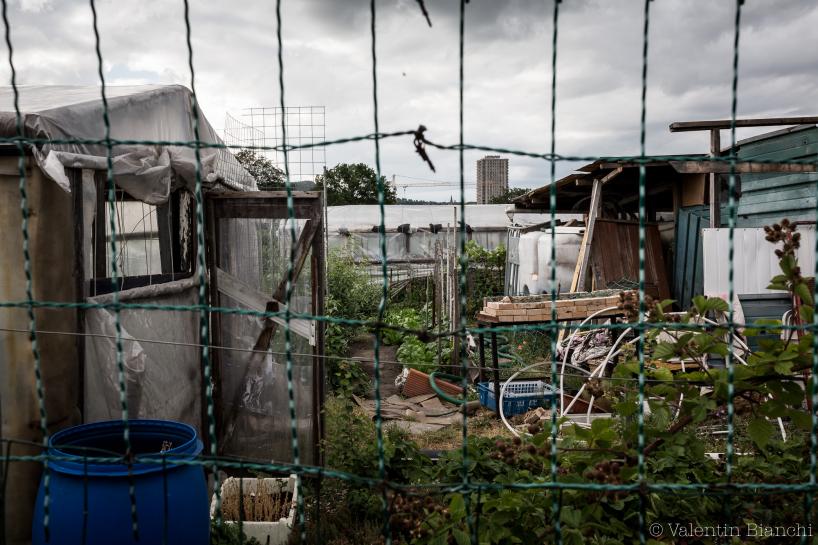
As soon as this study is announced, some families decide not to take any risks and throw away most of their production.
On 24 July 2017, the group of experts arrived on the site of the Bressoux vegetable garden. Hundreds of soil samples will be taken on site to determine potential heavy metal contamination of the soil.
The site is divided and according to studies, some parts are more likely to contain heavy metals.
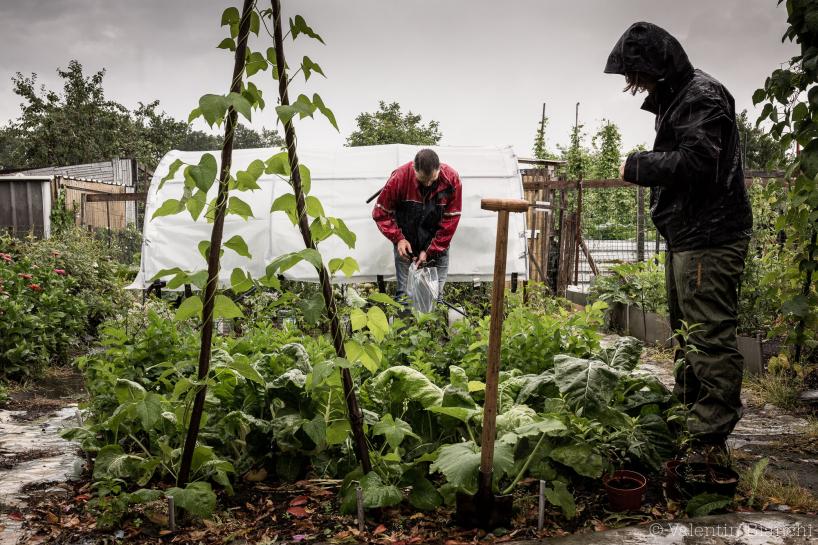
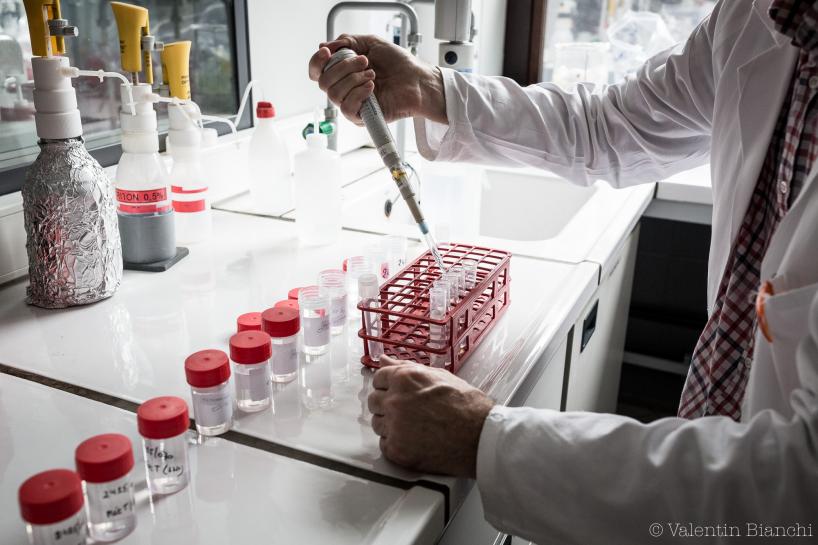
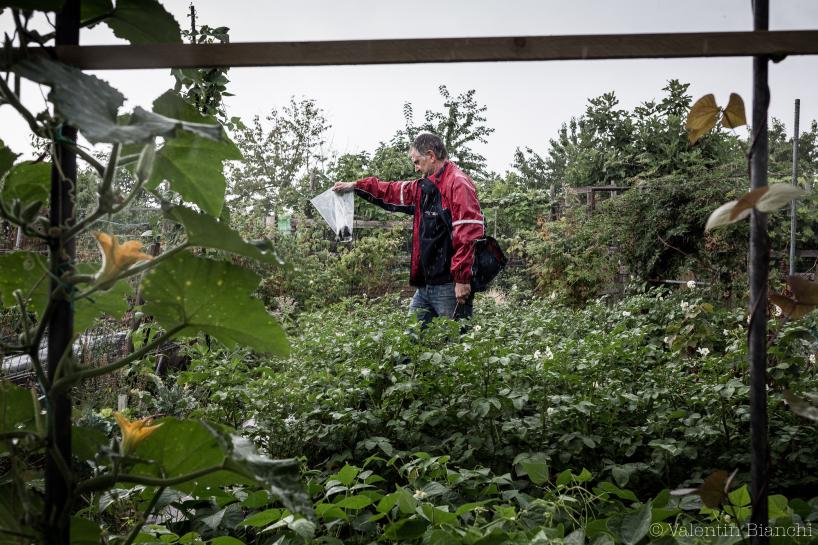
A few months later, in October 2017, the results fell. Samples revealed the presence of several substances such as lead and arsenic but also zinc and mercury. About 80% of the vegetables collected had lead levels well below the permitted limit.
Only a few deep-rooted vegetables have levels above the current standard.
Following these samples, it was specified that it was preferable not to consume any more vegetables or fruits from this vegetable garden.
However, the site is still in operation….
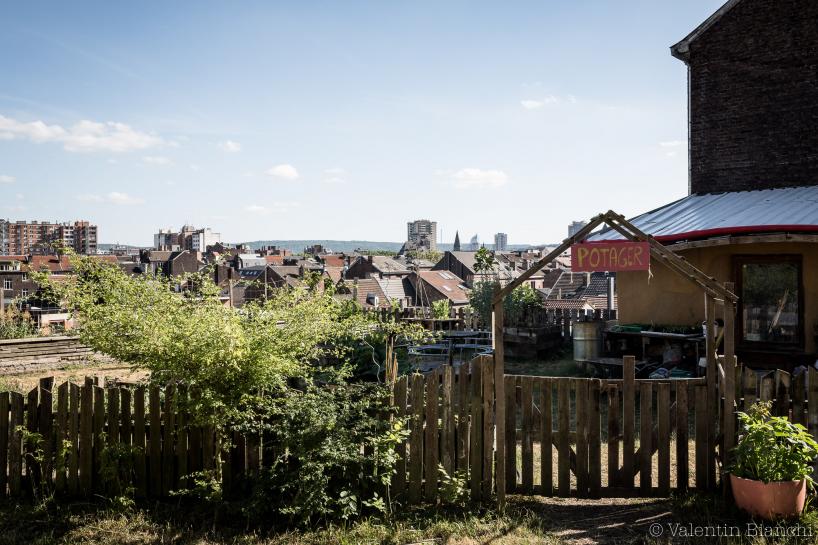
On Liège, there are the historical vegetable gardens and then there is also the emergence of associative vegetable gardens as here on the hill leading to La Citadelle de Liège, more commonly known as the hillsides of La Citadelle. Closer to the centre, the site also offers a series of training courses to help citizens in their responsible approach. The site offers modern and alternative solutions, better able to meet the needs of urban vegetable gardens.
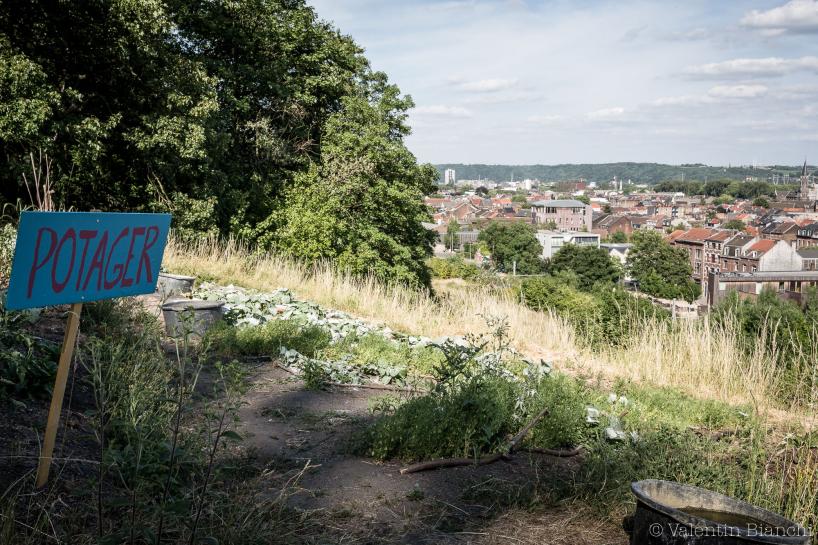
Urban vegetable gardens are popular all over Europe but in Liège, there have been many attempts and unfortunately most of them are disappearing. Lack of maintenance and follow-up by citizens.
But it also encourages some young people to return to organic and agro-ecological market gardening projects.
On Tilff, in the near outskirts of Liege, a very dynamic project called Vent de Terre was recently launched. Gabriel Lieutenant is one of those responsible. He appreciates the work in the field and makes it a point of honour to respect old market gardening techniques.
Unlike other vegetable gardens in the region, this project has a commercial vocation. Vent de terre provides respectful restaurateurs with a high quality product but not only, a sale to private individuals is offered several days a week.
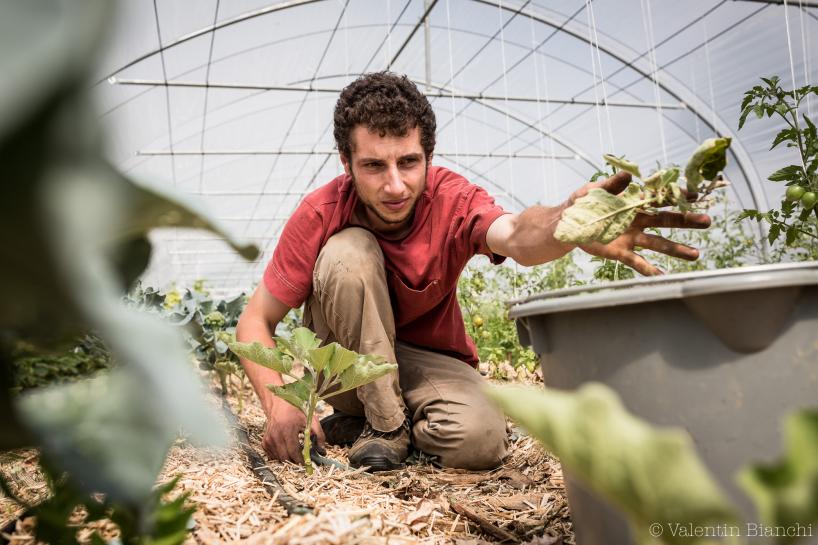
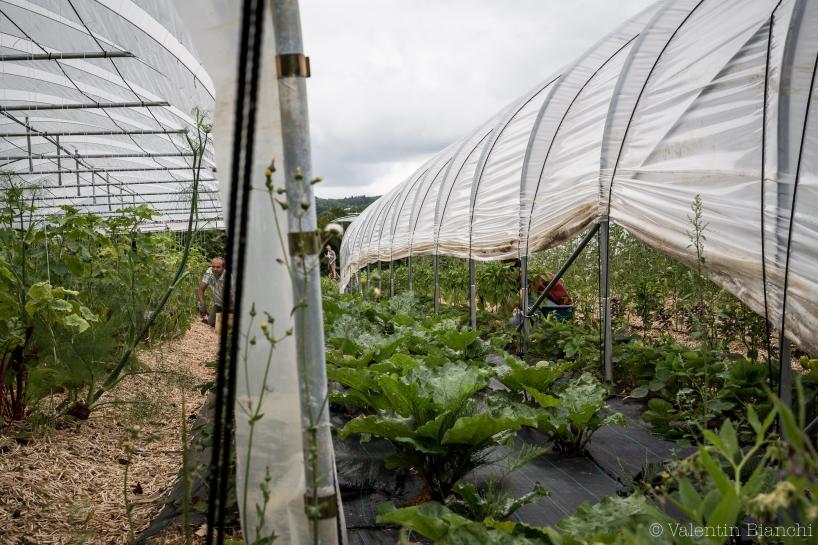
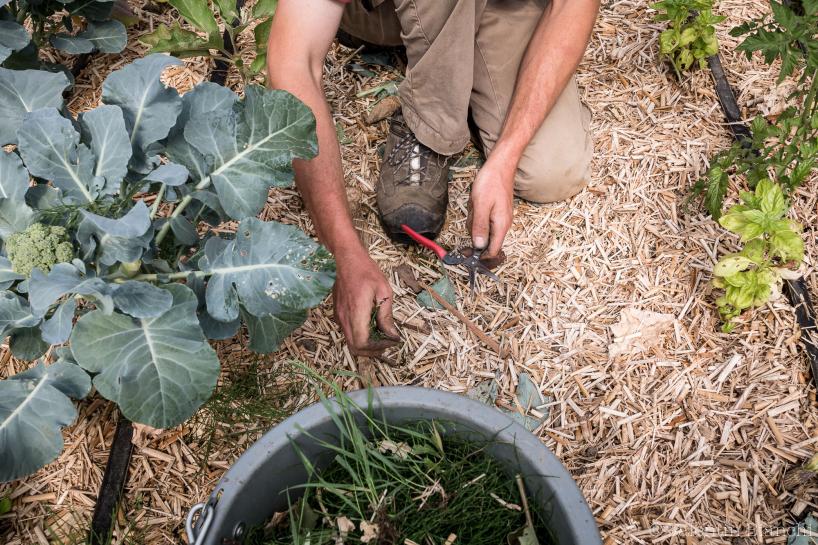
The site of the Thier-à-Liège vegetable garden is a good example of the idea of family vegetable gardens at the beginning of the 20th century. Located between a former slag heap and a former working-class city, this vegetable garden offered families living in the city and working on coal mining sites a healthy and productive solution to provide food for the family.
At the moment, the site is still in operation and still provides many families with quality fruit and vegetables.
The parcels in the northern zone are the property of the land registry of the city of Liège. These are negotiated at a rental price of 0.25€/m2.
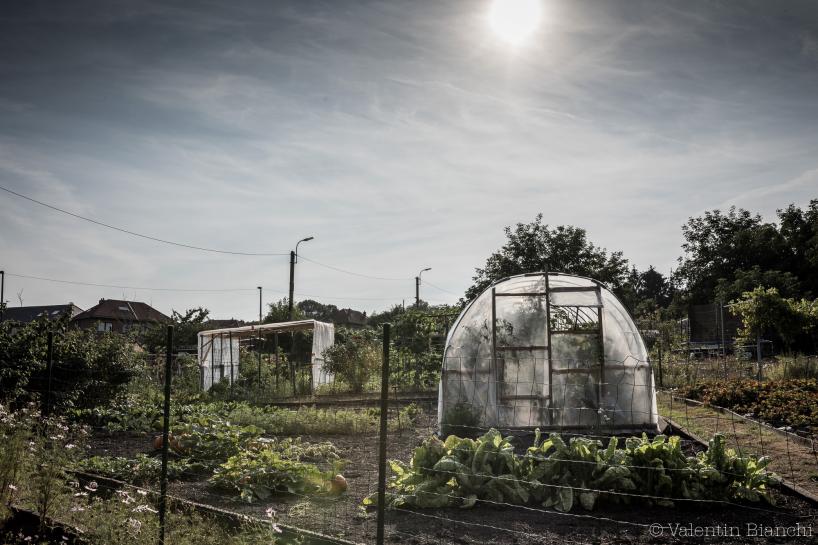
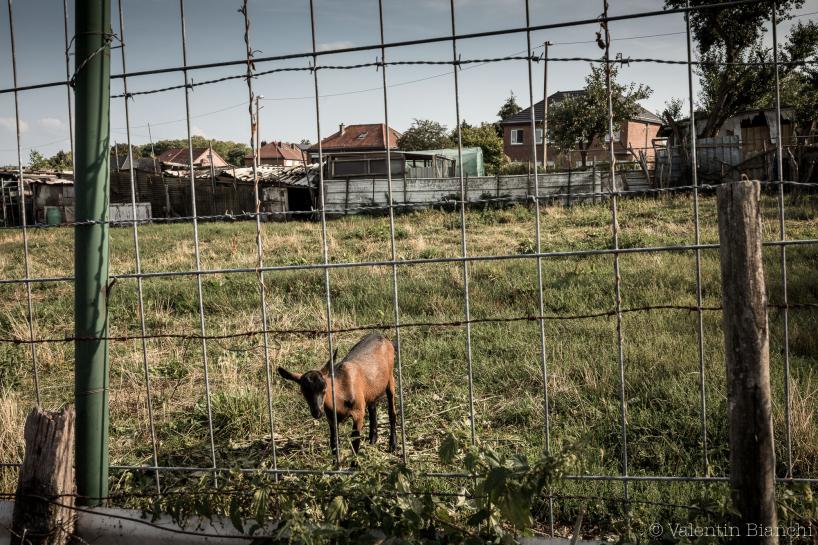
The remaining parcels of land belong to the housing company of the land registry. These are made available to the inhabitants of the nearby city.
Most families have been farming for more than 45 years for some. Unlike other sites in the region, no evidence of soil pollution was found.
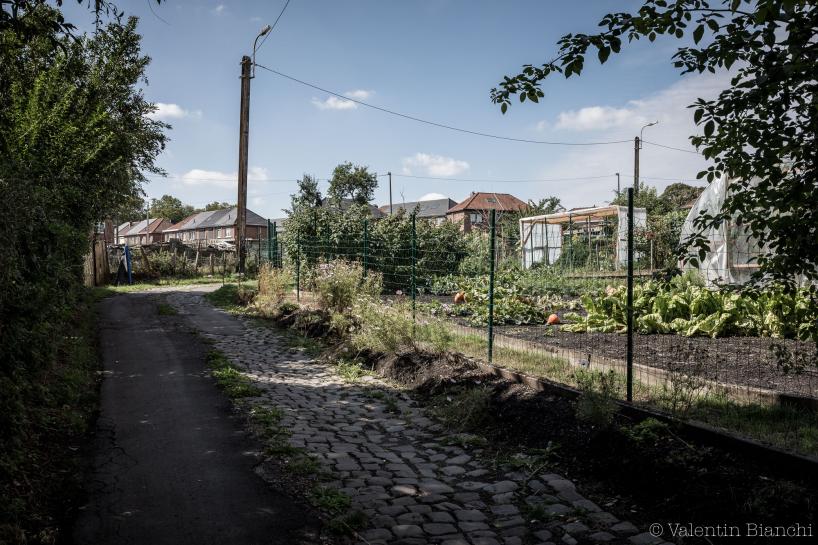
August 23, 2018, Liege, Belgium. Portrait of Patrice Coulon, 62 years old. Very active in the municipality of Thier-à-Liège, he has been working his plot for 12 years. One of the largest and best maintained in the Thier-à-Liège community vegetable garden. His wife, a former soldier, says he likes everything to be well organized. 18 members of his family benefit from the production of his vegetable garden.
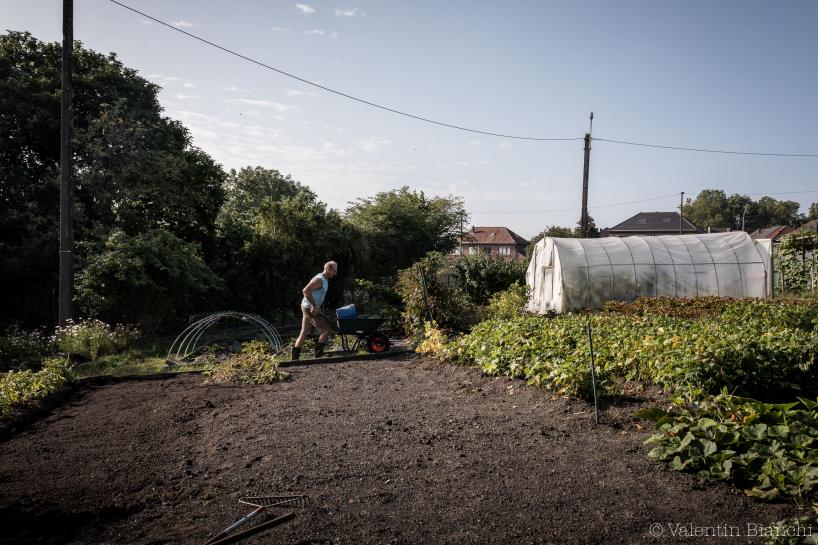
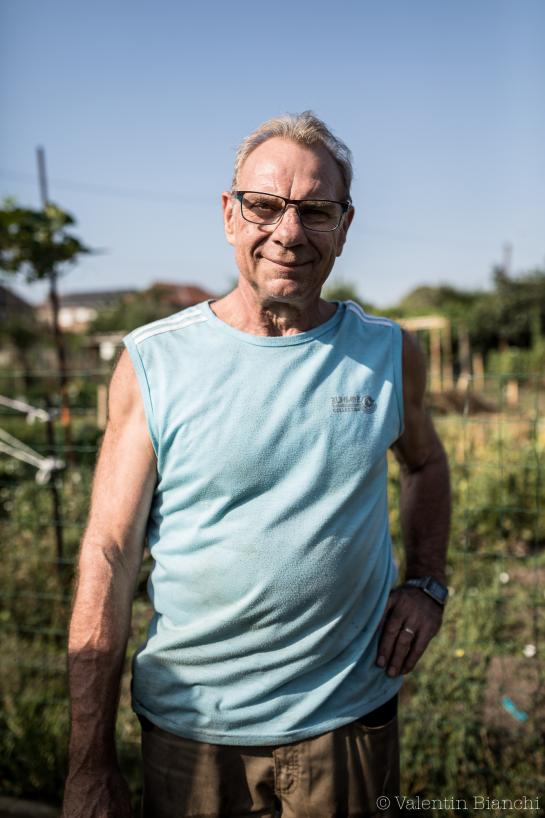
August 16th, 2018, Liege, Belgium. Gaetano Lomonte, 78 years old. 46 years of daily work on his plot of the Thier-à-Liège community vegetable garden. He is one of the pillars of this great historical vegetable garden. He is also one of the most communicative and is often there to reconcile with each other. About 6 people in her family eat the fruits and vegetables from her vegetable garden.
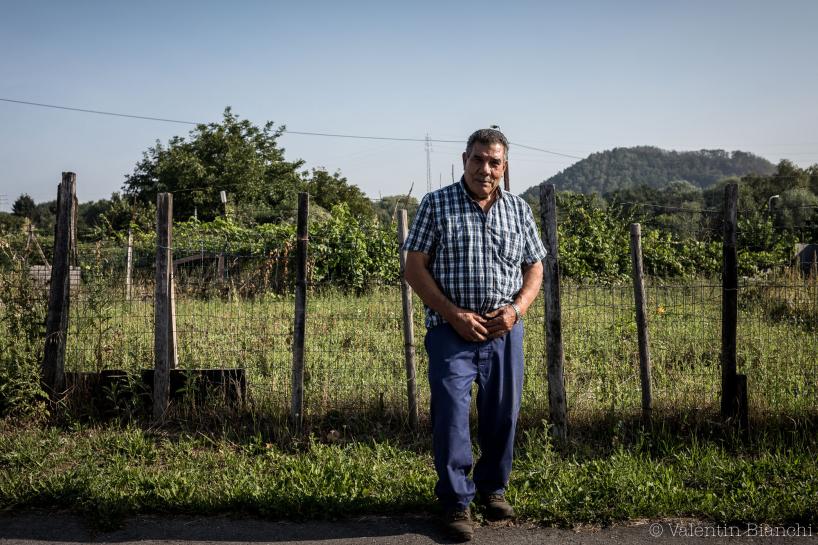
August 23, 2018, Liege, Belgium. Portrait of Albert Palmaerts, 58 years old. Living in the nearby city, he cultivates his plot with the help of his wife. It allows many family members and friends to have fresh fruits and vegetables on a regular basis. 3 years of occupation on the vegetable garden of Thier-à-Liège.
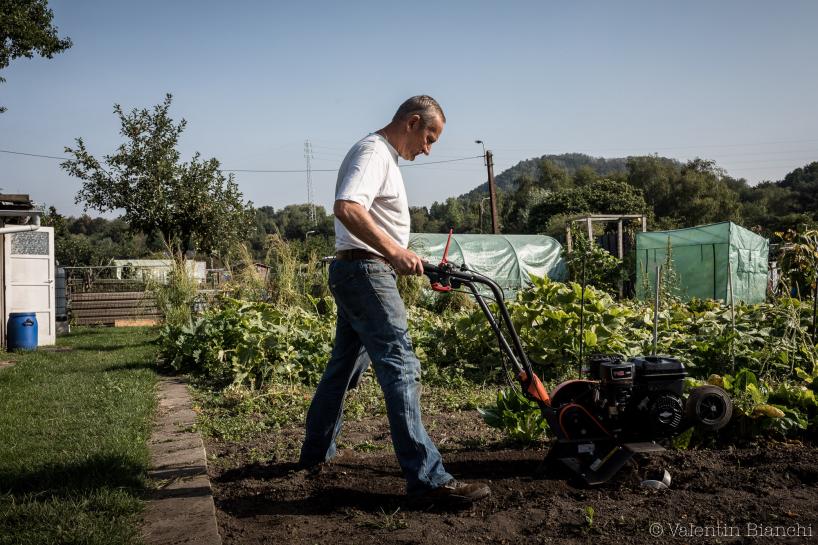
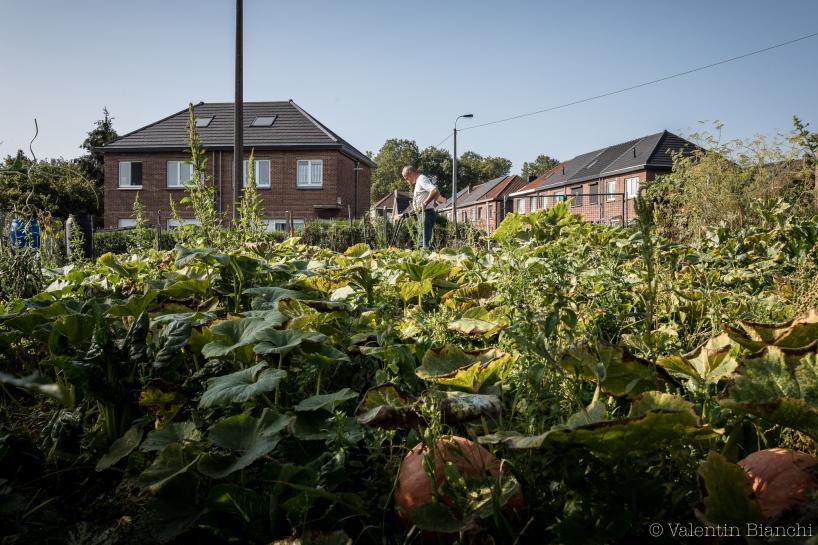
August 23, 2018, Liege, Belgium. Mr Ribaudou, 85 years old, former sheet metal worker-welder…
20 years of occupation on the community vegetable garden of Thier-à-Liège, its plot is located on the most western part of the site. Close to former workers’ housing.
He comes daily, regardless of the weather, to cultivate and maintain his plot of land. He doesn’t want to stop because he’s afraid to stay home and do nothing.
Mr Ribaudou, does not understand this trend of “Bio”. He has never used a single chemical product on his land and yet he claims to have regular and large productions.
He says he is very disappointed with the new generations because no one wants to come and help him to continue the production of the vegetable garden. He says that young people are afraid to work the land.
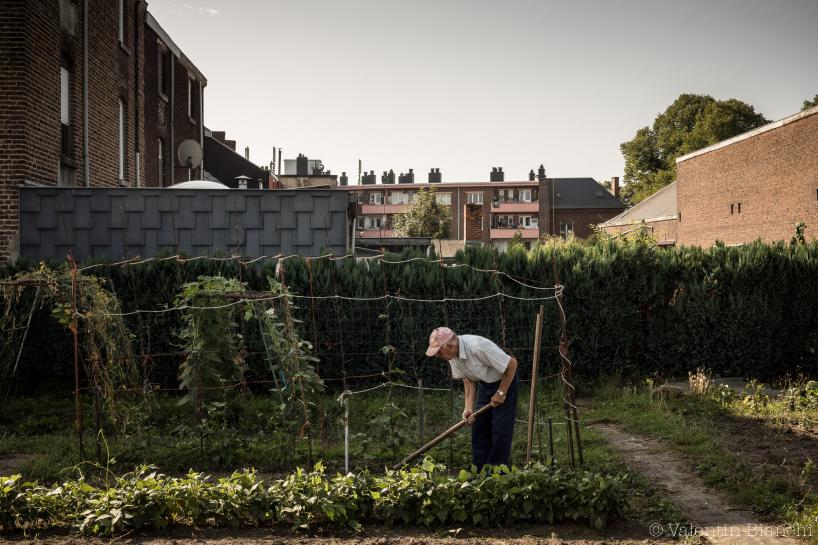
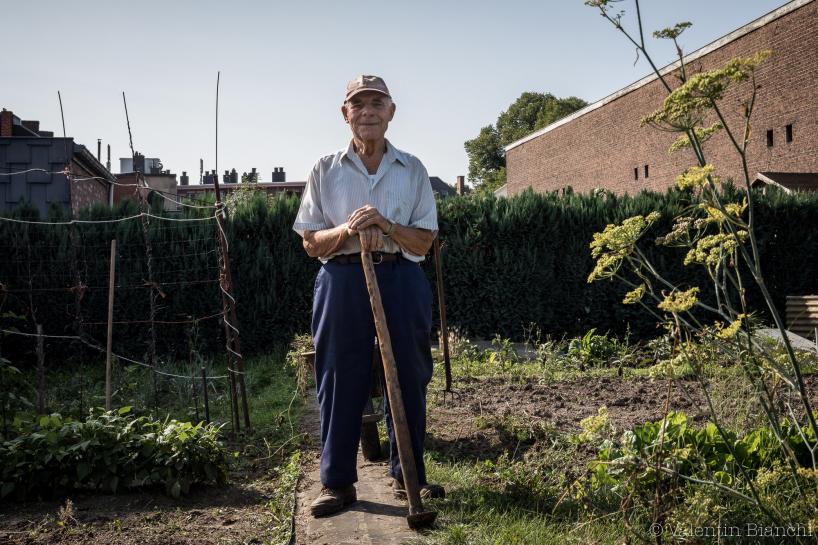
August 18, 2018, Liege, Belgium. Thier-à-Liège vegetable garden.
Within the community vegetable garden, a man decided to live differently, his name: Pierre Frankignoulle, professor at the Faculty of Architecture of the University of Liège.
This land, a place where 4 working families lived at the beginning of the 20th century, was razed to the ground in the 1970s. The 4 houses of the time have left traces, the concrete screed of these small houses is now the base of Mr Frankignoulle’s ponds.
For a few years now, he has been developing his land to achieve his goal, to live on it.
He installed a residential trailer and then a former trailer on the site. A friend helped him assemble the two and set up the old trailer. It had been bought from a neighbour on a plot of land next to the vegetable garden of Le Thier-à-Liège.
He has now been living in his little corner of paradise for over a year. He is the only one living on this community vegetable garden. He does not cultivate there and defends a different way of life.
Cultured, a great lover of reading, he likes to enjoy the calm that life offers in this particular place.
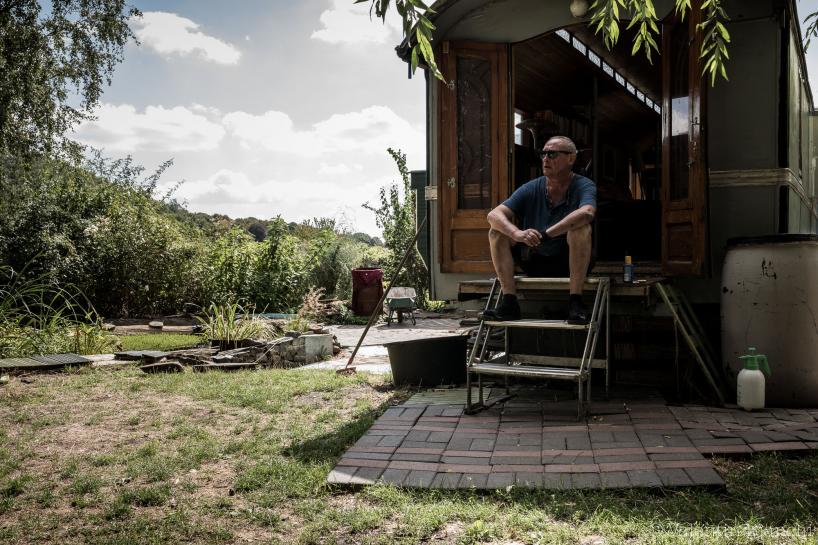
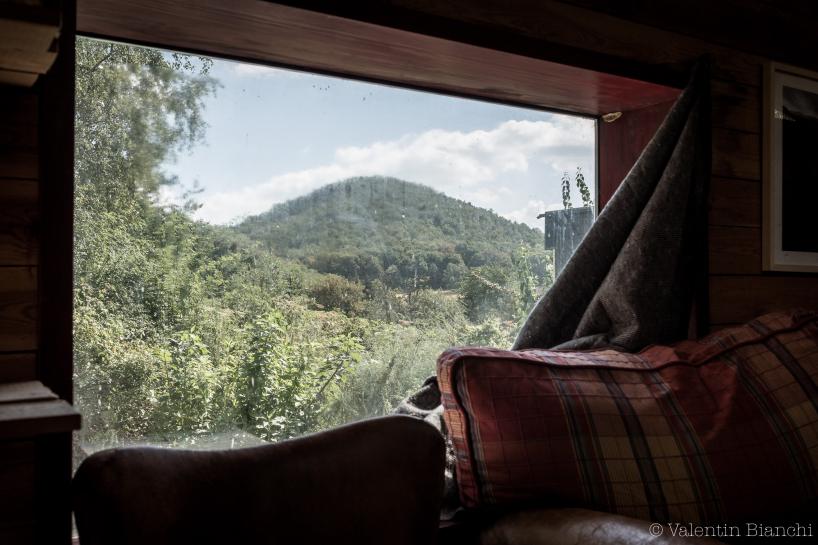
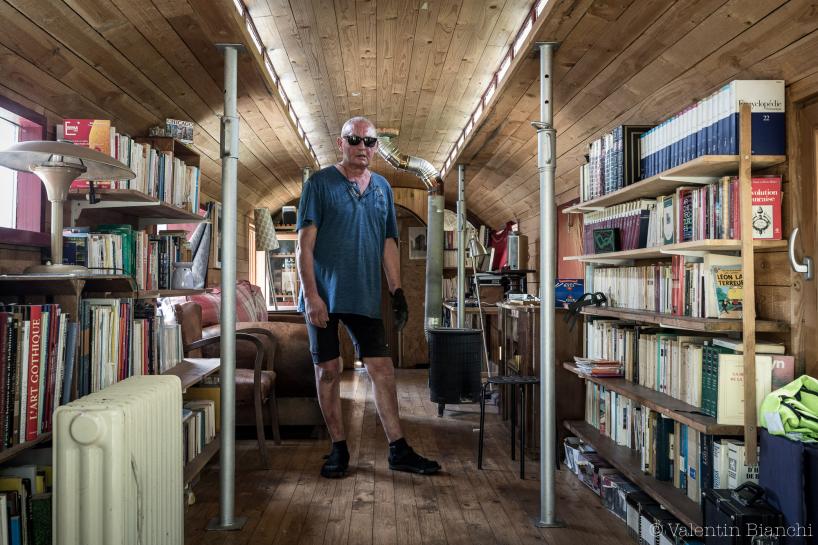
At a time when many citizens of the world are discovering “Bio”, some have never consumed anything but it. Fashion amuses them and they continue their little journey. Whether they are called “Workers’ vegetable gardens”, “Family vegetable gardens” or “Urban vegetable gardens”, they are part of the history of the Liège steel basin. They persist and evolve, despite fashions…
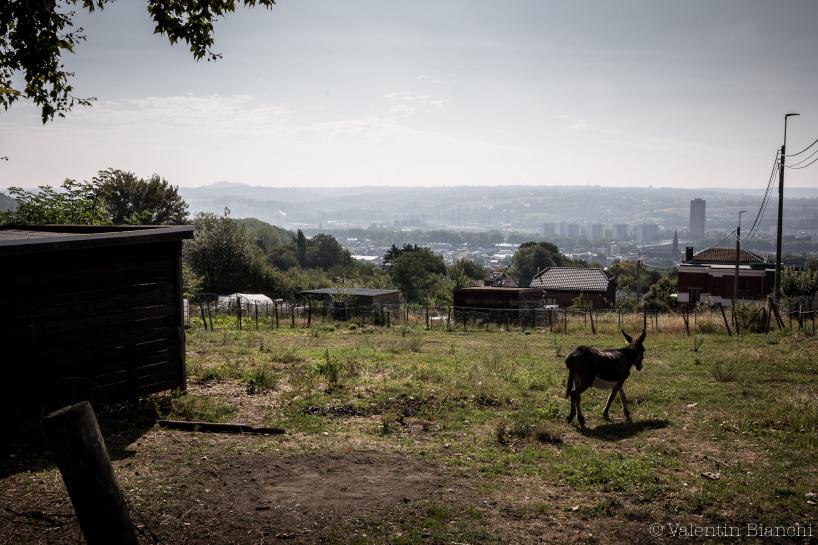



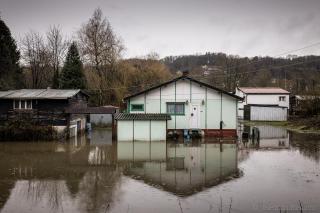
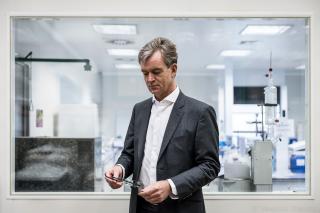
Merci Valentin ! Super beau reportage sur le Thier-à-Liège